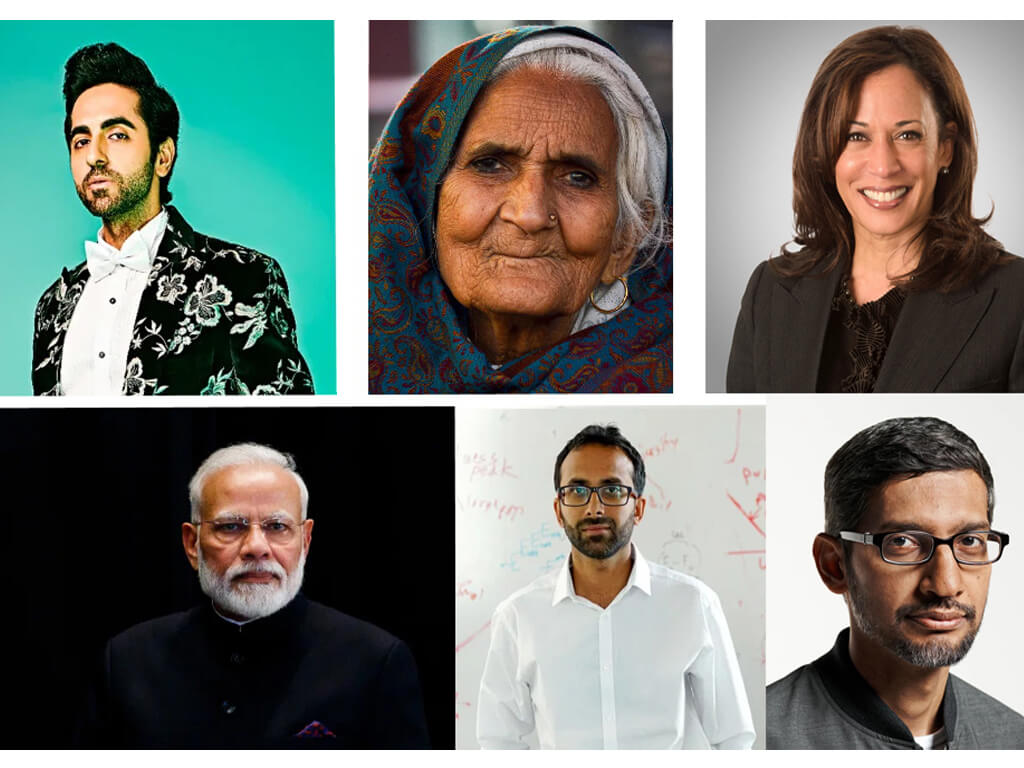
Check Out The 6 South Asians Who Made TIME Magazine’s 100 Most Influential People of 2020
Lifestyle Sep 25, 2020
TIME unveiled their list of the “100 Most Influential People”. Which included five notable South Asians, who share the coveted position on the list alongside other global luminaries. Check out who represented us in this year’s list!
Ayushmann Khurrana
Ayushmann earned a spot in the Artists category, with his roles in films like Vicky Donor and Shubh Mangal Saavdhan really setting him apart for his peers.
Depika Padukone wrote, “I remember Ayushmann Khurrana vividly from his debut film, Vicky Donor. He had, of course, been a part of the entertainment industry in various other ways for several years before that, but the reason you and I talk about him today is because of the impact he has been able to create through memorable films and iconic characters. Where male protagonist roles often fall into the trap of stereotypical masculinity, Ayushmann has successfully and convincingly transformed into characters who challenge those very stereotypes.
“In India, with a population of more than 1.3 billion, only a tiny percentage of people see their dreams come alive, and Ayushmann Khurrana is one of them. You’re probably wondering, How? Talent and hard work. Sure, that goes without saying. But more important, patience, perseverance and fearlessness. A little insight for those who dare to dream.”
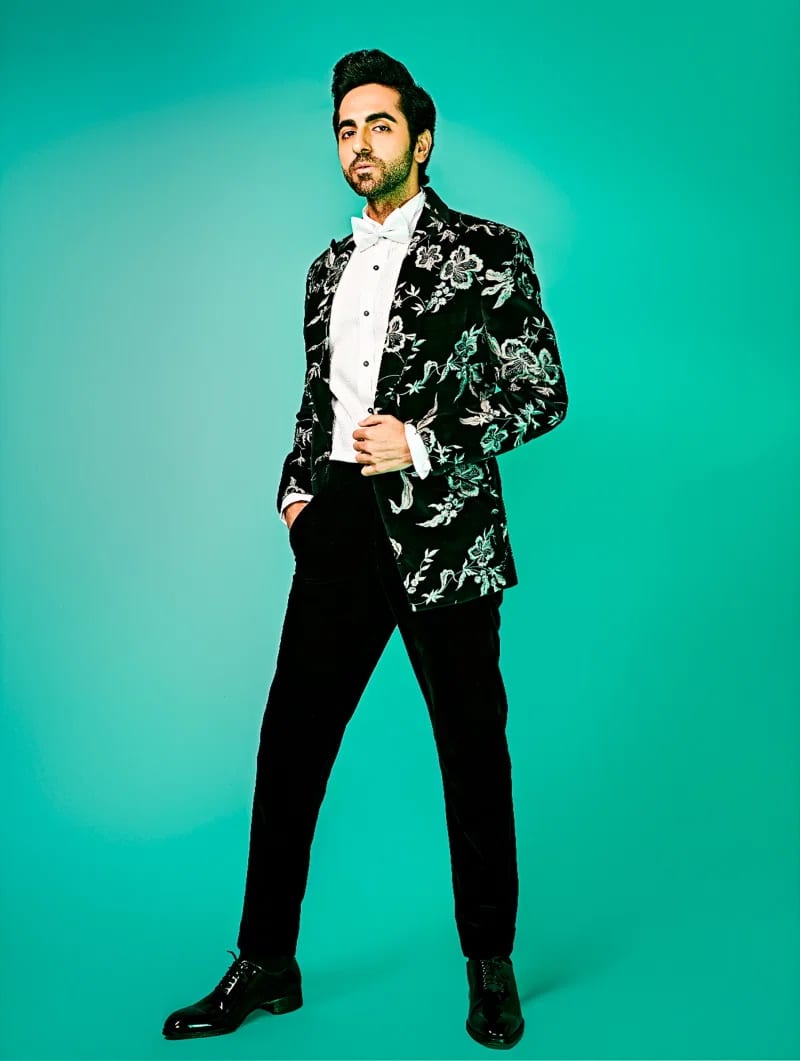
Kamala Harris
She has been breaking barriers throughout her life. Now as the first South Asian and Black woman to be nominated for Vice President during an historic upcoming 2020 elections, Kamala Harris is now looked to as one of the most important role models for BIPOC women worldwide.
Ayanna Pressley wrote, Democratic Congresswoman from Massachusetts, wrote: “Kamala Harris has always been a trailblazer. She broke barriers in California, made history in the U.S. Senate, and now she’s the first Black woman and first Indian American to be nominated for Vice President by a major political party.
Kamala’s nomination is the realization of a dream that so many have struggled for so long to make possible. She was raised by a strong woman rooted in community to be a strong woman rooted in community. Her life and career have been defined by a fierce commitment to public service and an abiding belief in government as a force for good.
I’ve been honored to work alongside Kamala in Congress and to bear witness to her passion, tenacity and dedication. In a moment when our communities are facing overlapping crises of public health, economic inequality and systemic racism, we’ve stood shoulder to shoulder to legislate together against discrimination in the response to COVID-19 and to support our local Black businesses.
Kamala every day embodies the beliefs and expectations of little girls and young women who see themselves in her. We speak of our elders and we say, “We are, because of them.” Years from now, a generation of young people will look at Kamala and say, “We are, because of her.””

Narendra Modi
Modi was selected under the leaders category. Karl Vick, a TIME editor at large, wrote:“The key to democracy is not, in fact, free elections. Those only tell who got the most votes. More important is the rights of those who did not vote for the winner. India has been the world’s largest democracy for more than seven decades. Its population of 1.3 billion includes Christians, Muslims, Sikhs, Buddhists, Jains and other religious sects. All have abided in India, which the Dalai Lama (who has spent most of his life in refuge there) has lauded as “an example of harmony and stability.”
“Narendra Modi has brought all that into doubt. Though almost all of India’s Prime Ministers have come from the nearly 80% of the population that is Hindu, only Modi has governed as if no one else matters. First elected on a populist promise of empowerment, his Hindu-nationalist Bharatiya Janata Party rejected not only elitism but also pluralism, specifically targeting India’s Muslims. The crucible of the pandemic became a pretense for stifling dissent. And the world’s most vibrant democracy fell deeper into shadow.”
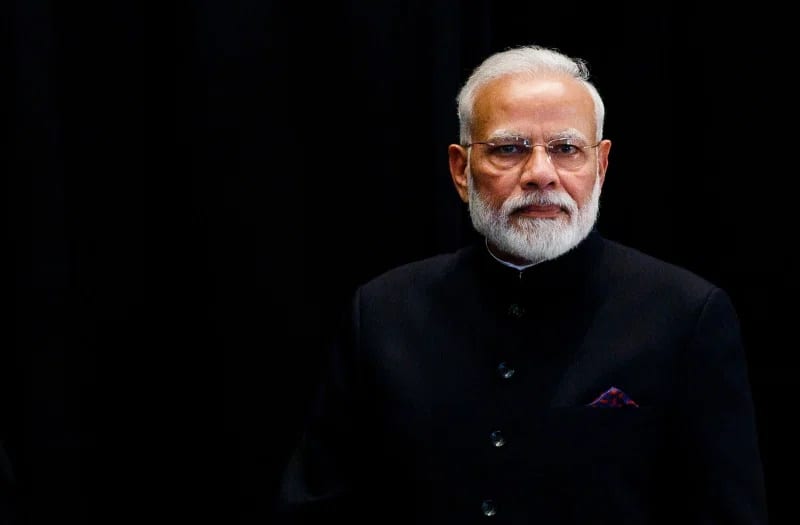
Sundar Pichai
Pichai Sundararajan, known as Sundar Pichai, is an Indian-American business executive. He is the chief executive officer of Alphabet Inc. and its subsidiary Google LLC. He was selected under the Titans category.
Jamie Dimon, chairman and CEO of JPMorgan Chase, wrote: “Taking the helm of an iconic American company and positioning it for long-term success in a way that reflects your values is no easy task. Sundar Pichai’s uniquely American story—emigrating from India as a young adult and working his way to become CEO of a $1 trillion corporation—represents the best of what we aspire for our society. He used his natural gifts and strong work ethic to rise through the ranks of Google (now Alphabet) by leading many of their most successful products, such as Drive, Gmail and Maps, and officially took the reins of the company in December.
Google is a client, partner and competitor of ours, but we both recognize that our success is dependent on a healthy and inclusive economy that looks out for employees, customers and communities. Sundar, along with myself and 25 CEOs of New York City’s other largest employers, recently committed to hiring 100,000 traditionally underserved New Yorkers by 2030, with a focus on low-income, Black, Latinx and Asian communities.
The challenges Sundar faces in his role are among the most important of our time—issues of innovation, privacy, regulation and competition. But his analytical, humble and inclusive leadership will position Google to meet the moment. These are traits the world could use a lot more of in these times.”
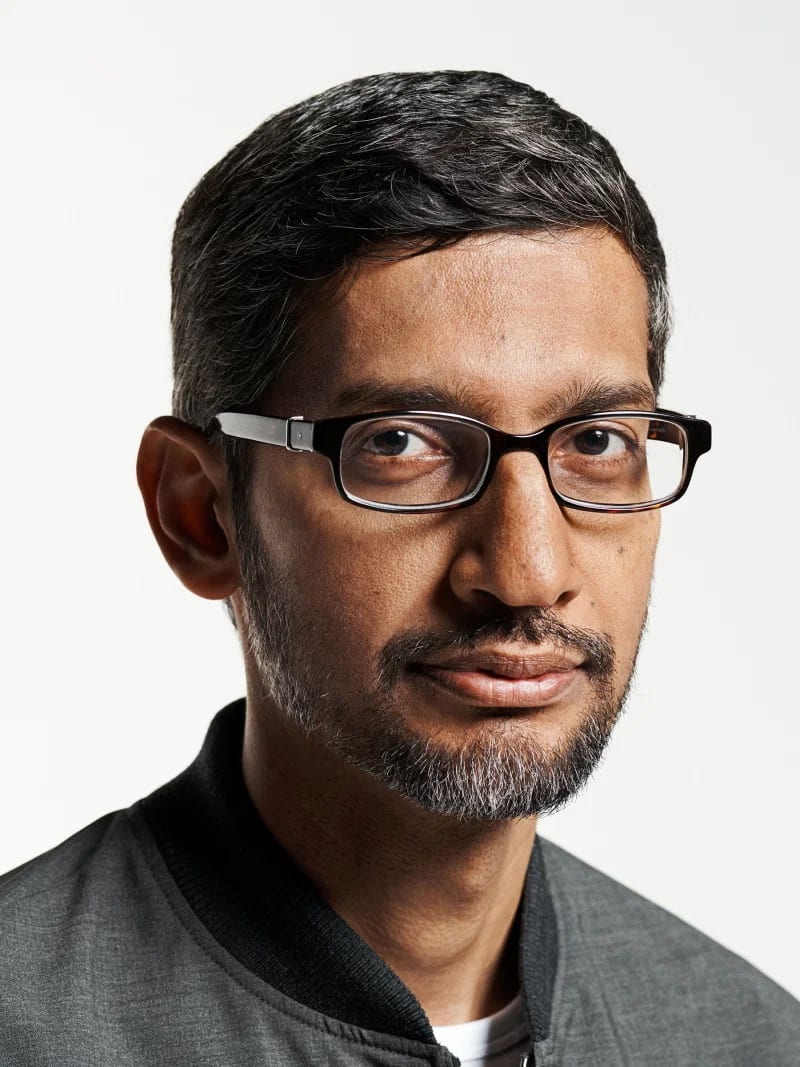
Bilkis
Bilkis became the face of a female-led protest against a controversial citizenship law in New Delhi. She was selected under the Icons category, alongside Naomi Osaka and Angela Davis.
Rana Ayyub, an Indian journalist and the author of Gujarat Files: Anatomy of a Cover Up, wrote: “When I first met Bilkis, she sat in the midst of a crowd, surrounded by young women who were protesting with placards displaying verses of revolution. With prayer beads in one hand and the national flag in the other, Bilkis became the voice of the marginalized in India, an 82-year-old who would sit at a protest site from 8 a.m. to midnight.
“She had been sitting there ever since Indian Prime Minister Narendra Modi’s government passed the Citizenship Amendment Act, which could block Muslims from citizenship in the country, in December, and she continued through the cold winter. Bilkis, along with thousands of women who joined her in Shaheen Bagh, a neighborhood in New Delhi, became the symbol of resistance in a nation where the voices of women and minorities were being systematically drowned out by the majoritarian politics of the Modi regime. Bilkis gave hope and strength to activists and student leaders who were being thrown behind bars for standing up for the unpopular truth in a democracy that was sliding into authoritarianism, and inspired peaceful copycat protests across the country.
“She said to me as a parting note: “I will sit here till blood stops flowing in my veins so the children of this country and the world breathe the air of justice and equality.” Bilkis deserves recognition so the world acknowledges the power of resistance against tyranny.”
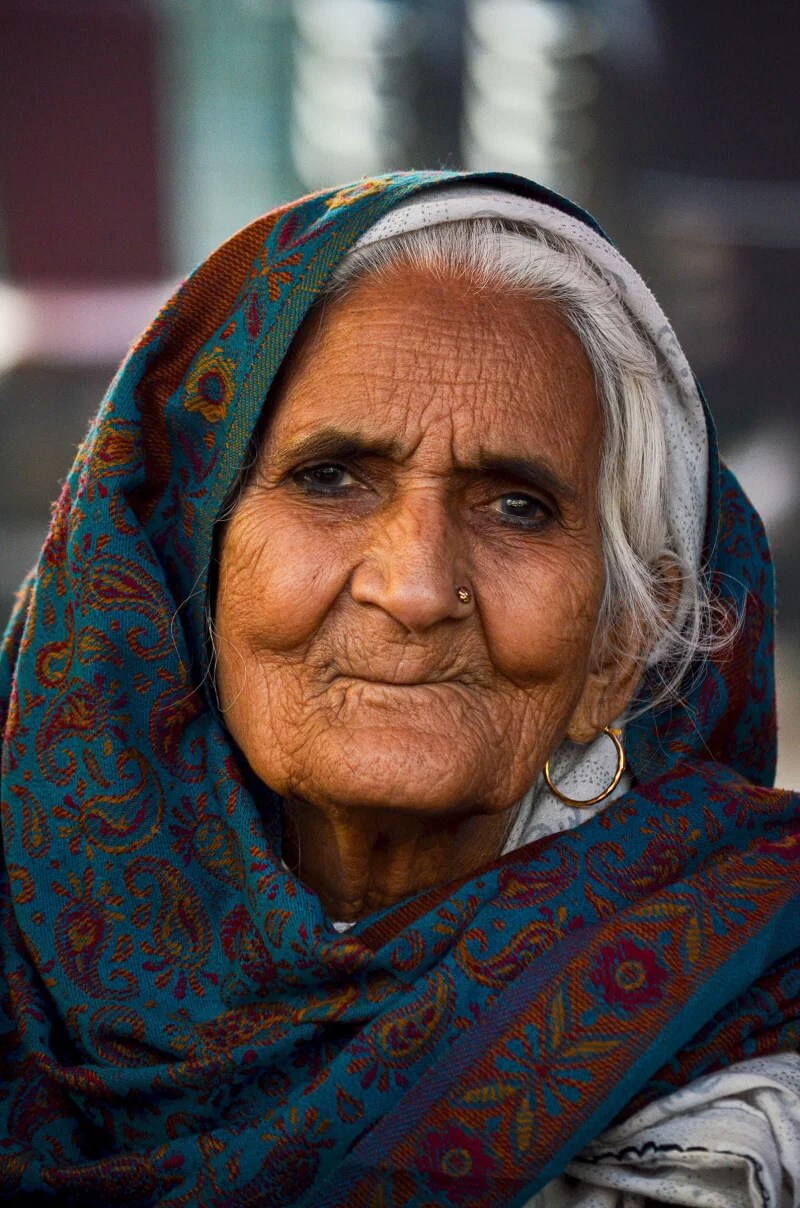
Ravindra Gupta
Indian origin HIV biologist Professor Ravindra Gupta was selected under the Pioneers category.
Adam Castillejo, is known as the London Patient, the second person ever to be functionally cured of HIV, wrote:“My improbable journey to a functional HIV cure, led by Professor Ravindra Gupta, commenced during a very tempestuous period of my life. But when I was first introduced to Gupta, I was pleasantly surprised. He was thoughtful and compassionate, and his accomplishments—now including oversight of the stem-cell treatments I received from a donor with a rare gene mutation, which led to my remission—clearly earned him respect and admiration from his colleagues in the HIV research community. Now he has mine, as well.
“Through the years, our partnership has developed and strengthened as Gupta has shared his knowledge and his enthusiasm to find a feasible cure for everyone. He has championed me and empowered me to become an ambassador of hope to millions of people living with HIV around the world.
In recognition of his work, last year the University of Cambridge appointed him professor of clinical microbiology at the Cambridge Institute of Therapeutic Immunology and Infectious Disease. I’m so fortunate and humbled to know him, and to see how his dedication can conquer this disease.”
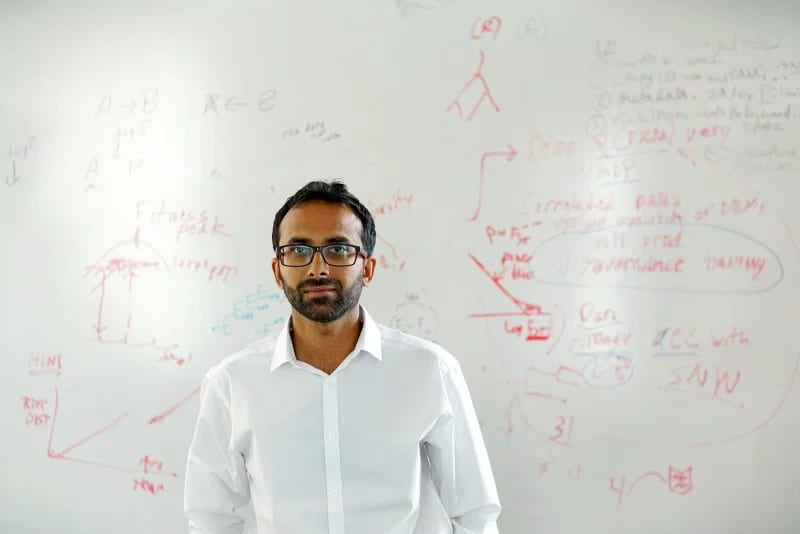
Main Image Photo Credit: TIME
Author
Marriska (@marriska.fernandes) is an entertainment expert who has been creating celebrity, movies and pop culture content for digital outlets for over ten years. From reporting headline-grabbing celebrity news to reviewing movies to interviewing Hollywood and Bollywood’s finest actors and industry...













































































































